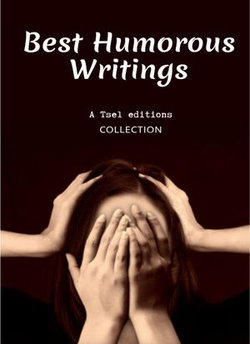Humor is the tendency of experiences to provoke laughter and provide amusement. People of all ages and cultures respond to humor. Most people are able to experience humor—be amused, smile or laugh at something funny (such as a pun or joke)—and thus are considered to have a sense of humor. Therefore, laughter is good for our well-being because it reduces stress and relieves some physical pain.
This book is a special collection of twenty wonderful humorous writings which are going to improve your well-being after reading them.
Here they are :
A Voyage to the Moon by George Tucker
Brother Jacob by George Eliot
Don Quixote by Miguel Cervantes
Flatland: A Romance of Many Dimensions by Edwin Abbott Abbott
Gigolo by Edna Ferber
Gulliver's Travels by Jonathan Swift
Lady Susan by Jane Austen
My Man Jeeves by P. G. Wodehouse
Our Mutual Friend by Charles Dickens
Right Ho, Jeeves by P. G. Wodehouse
Sylvie and Bruno by Lewis Carroll
The Adventures of Huckleberry Finn by Mark Twain
The Canterville Ghost by Oscar Wilde
The Missing Angel by Erle Cox
The Napoleon of Notting Hill by Gilbert Keith Chesterton
The Way We Live Now by Anthony Trollope
The Wheels of Chance by H. G. Wells
Three Men in a Boat by Jerome Klapka Jerome
Topper by Thorne Smith
Topper Takes a Trip by Thorne Smith
A well-formatted, easy-to-read book suitable for any e-reader, tablet or computer. The reader will go from one section to another one as quick as possible. Every author's biography is included in this edition.



Share This eBook: